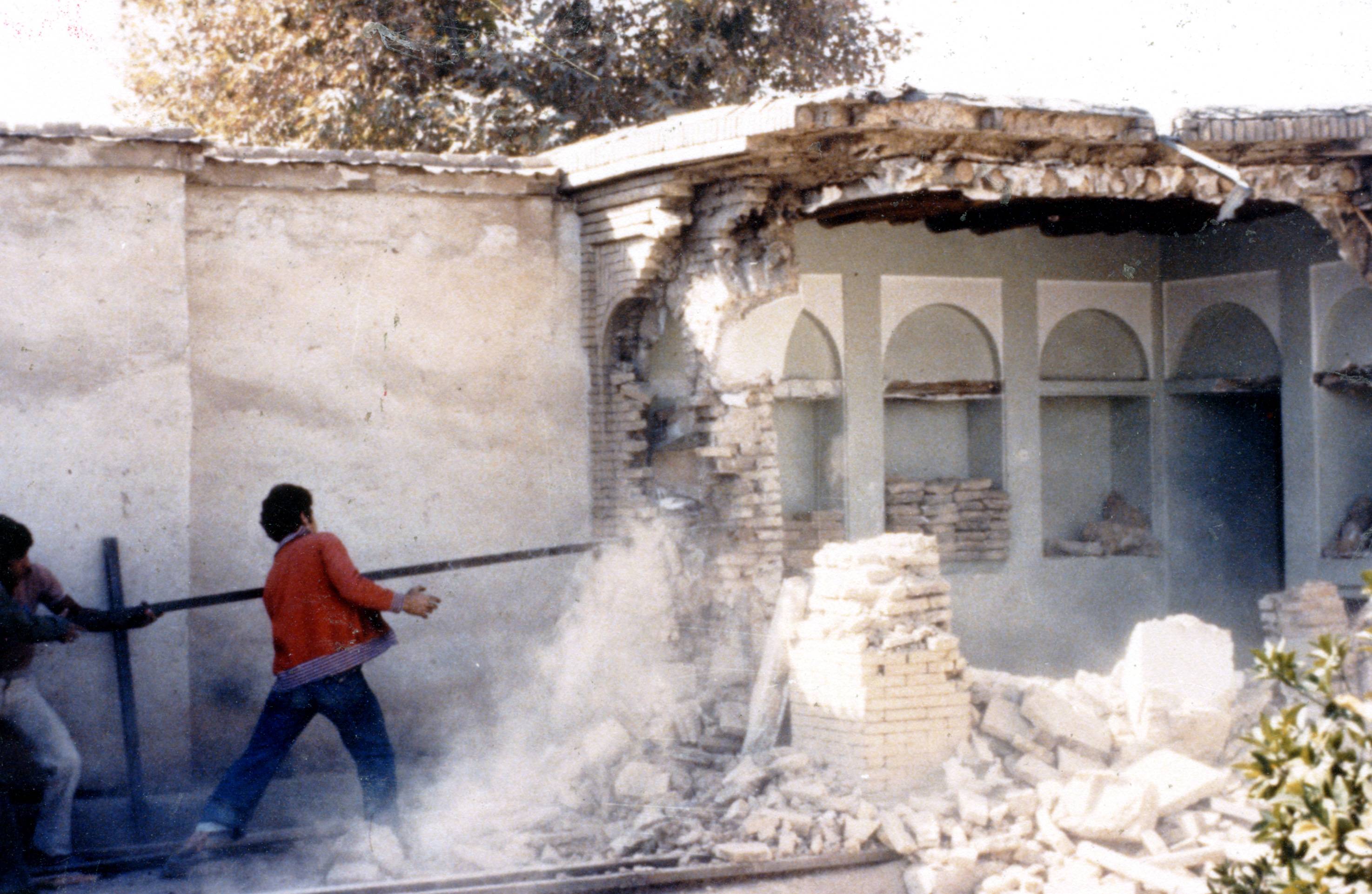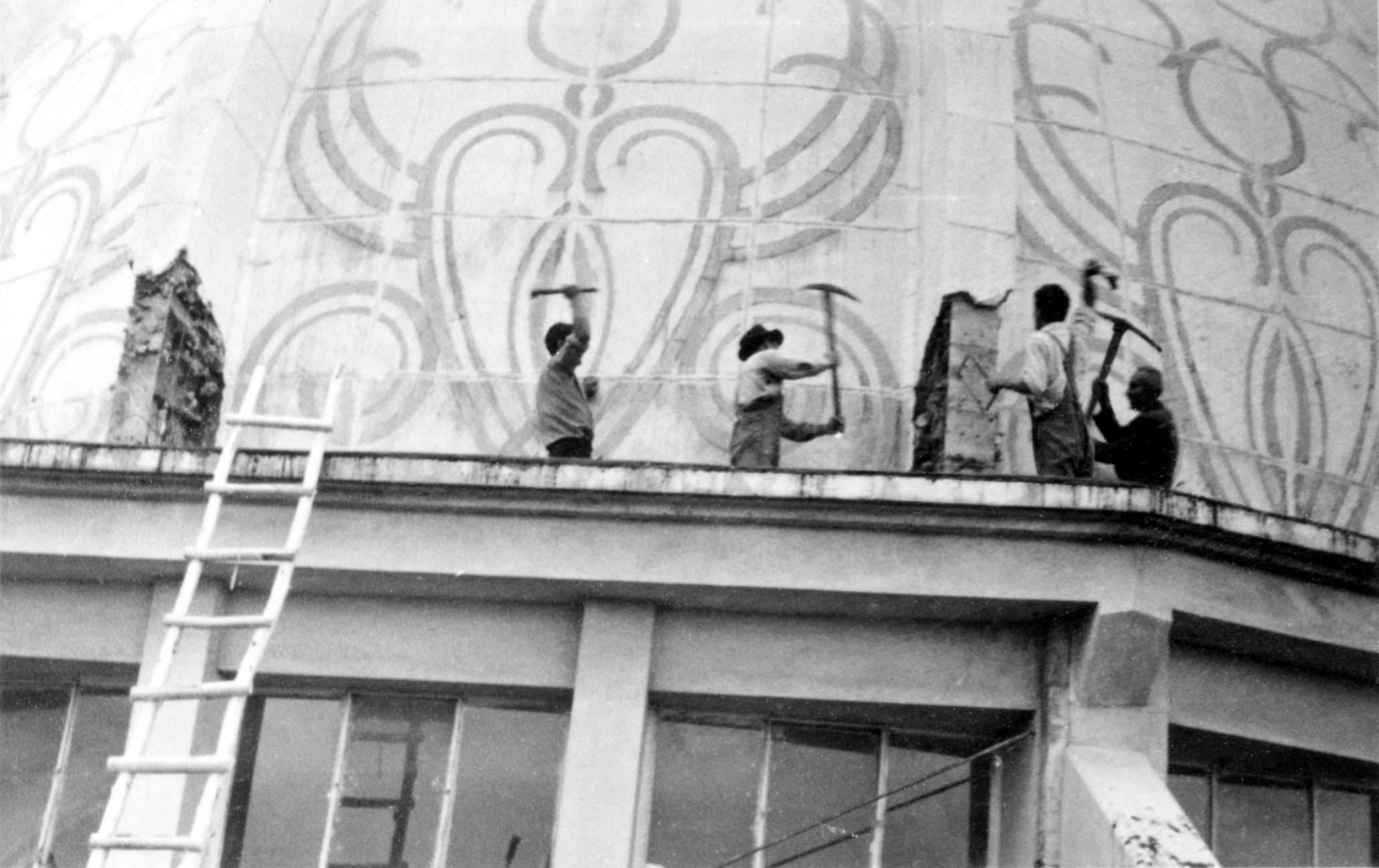The Islamic regime places the sect of Shi’a at the core of the Islamic state. The regime coerces Iranians into a way of life based on their own interpretation of Islam. This is the focal aim of the Mullahs. Among all minorities, Baha’is have been the most victim of the Islamic regime. Baha’is faith avoids violence and “even if a Baha’i is struck he should not return the blow.” This concept of nonviolence à la Christian teaching, makes them easy preys of aggressive thugs of the Islamic regime. The UN, the EU, and Amnesty international have confirmed that hundreds of Baha’is have been arrested, jailed, tortured and killed by the Islamic regime.
Religious minorities, which include the Sunnite sect of Islam, Christian, Jews, Zoroastrians, and Baha’is, compromised about 11% of the population right after the Iranian revolution, reduced since then. Most of them are Sunnite Muslims who also suffer from discrimination of the 1979 revolution. In reaction to barbaric rules of sharia, many Iranians keep converting into non-believers or other faiths including Baha’i.
After takeover of power by Mullahs, schools of minorities were closed and their teachers dismissed – reopened due to international pressure. According to the Constitution of the Islamic regime, religious minorities are not allowed to hold high-ranking government jobs, nor are they welcome for lower level jobs, even for factory work. They are subjected to Islamic dress codes, holidays, and prohibitions on liquor and music. They are under the jurisdiction of the Islamic tribunals for any judicial case. The Constitution bids Muslims to respect the rights of non-Muslims, unless they “conspire against Islam or against the Islamic regime.” — It is up to Mullahs to decide what constitutes a conspiracy! Furthermore, Baha’is are excluded from this right because their faith is not considered as a religion of Book.

The regime has issued decrees forbidding non-Muslims from renting the upper story of a house where Muslims live the lower floor. It has forbidden the use of Muslim cadavers for medical research while recommending the use of non-Muslims. It has enacted a new tax structure in which non-Muslims pay dues, called “jazyeh”, an echo of the old laws of tribute which was imposed on people under force of Muslim occupiers in a territories. Religious minorities are forbidden or not tolerated to enter barber shops, communal baths, grocery stores and other public places because their body is considered “Nejis”, impure. The lives of religious minorities are as worth as half of those of Muslims.
The 75,000 members of the Jewish community have been suspected of being pro-Zionist. Many Jews were appalled and had to leave the country and some were executed for being “spies of Zoonomists.” Baha’is have been the most persecuted since the inception of the Islamic regime. 300,000 Baha’is had to leave Iran.
Zoroastrians, adherents of the ancient Persian faith and representatives of the pre-Islamic culture, are also systematically persecuted. In their capital city of Yazd, at the beginning of the Islamic rule, young girls were kidnapped by thuggish Pasdaran, personnel of the revolutionary corps of the regime, taken to the home of the Ayatollah Soddoughi, where gang raped and coerced her converted to Islam. Their families’ complaints went ignored and they were not allowed to visit her. In one case, the announcement was made of a marriage between a girl and a Pasdar. Such a tragedy is not the only single one inflicted on Baha’is but an example among many others.
In November, 1979, the Assembly of Experts declared Judaism, Christianity and Zoroastrianism the only officially recognised minority religions, leaving the Baha’is without constitutional protection. The Baha’i faith was founded in Iran in the 19th. Century and believes in the essential oneness of all great religions, honouring all of their prophets, including the Prophet of Islam, Muhammad. After the Sunnite sect of Islam, they are the largest of the religious minorities, numbering a half million at the time. Because it is believed as a deviation of Shi’a sect, Baha’i faith is viewed as heretical and their life and freedom severely jeopardised.

Baha’i faith actively seeks converts and has attracted a predominantly prosperous and modernised membership. Baha’is don’t believe in the Muslims’ belief that Muhammad is the last prophet, but they believe in a continuous Prophethood. Instead, Baha’is believe that religion is a continuous necessity for humankind, Baha’is call this idea “progressive revelation.” A belief which is considered a blasphemy in the Shi’a Islam and the members as apostates or “enemies of God”.
Baha’i faith has existed since before the Islamic regime. It was established in Iran 1863 by Bahá’u’lláh separated from the Shi’a sect and therefore the Shi’a sect bears strong animosity towards the Baha’i sect for “apostasy.” 20,000 members of the faith were executed in Iran under the Qajar Dynasty in the middle of the 19th century. The Hojatyyeh, an anti-Baha’i Shi’a group in Iran to which ex-President Mahmoud Ahmadinejad belongs, had started their “holy” war against Baha’is under the Shah. At that time, a number of Baha’is had important commercial holding, such as Pepsi-Cola.
Since the inception of the Islamic regime, the Baha’is’ religious centres and properties have been confiscated and their shrines destroyed. Their members in the armed forces have been given choice of converting to Islam or being dismissed. In August, 1980, their entire governing board was kidnapped and disappeared; six months later, their successors were arrested and the pressure continues today, many of them are charged with treason and thus severely punished. Other Baha’is have been fired from their jobs, driven into exile, and arrested for conspiring against Islam / Islamic regime.
The oppression of religious minorities, especially the Baha’i faith, is not incidental; it is part of the nature of the Islamic regime and continues today against all minorities and dissidents. Since 17 Mar 2009 seven leaders of the faith are in the Mullahs ‘jails. Today most Iranian Baha’is had to leave Iran looking exile in the Western countries, but unfortunately do not join the struggles of Iranian people against the plague of the Islamic regime because in their orthodoxy, the only saviour of oppressed people is God and this is prescribed for believers in the faith; they preached non-intervention in politics although are at most oppressed. Nevertheless, the history of Islam and the Islamic regime in Iran proves that the weak and the defenceless “unbelievers / apostates …” fall more victim to bullies of the cult.
Cover photo: A Bahá’í father and son (at left) in chains after being arrested with fellow Bahá’ís, in a photograph taken around 1896. Both were subsequently executed.






